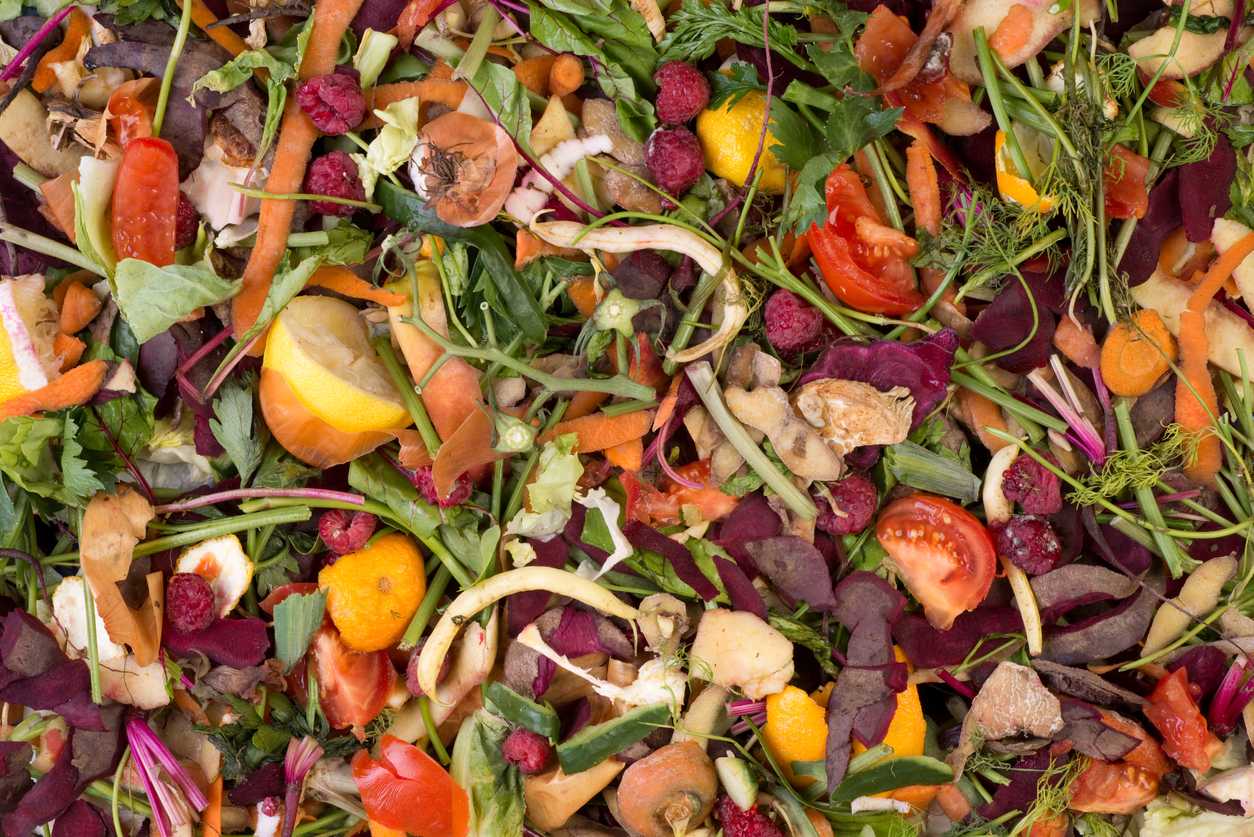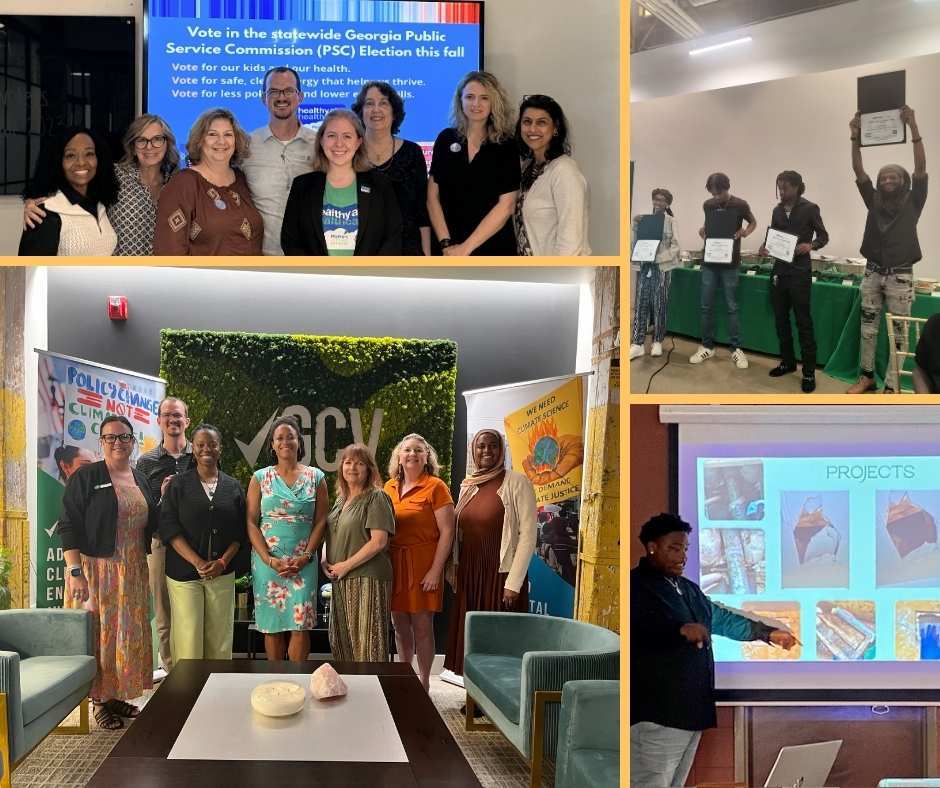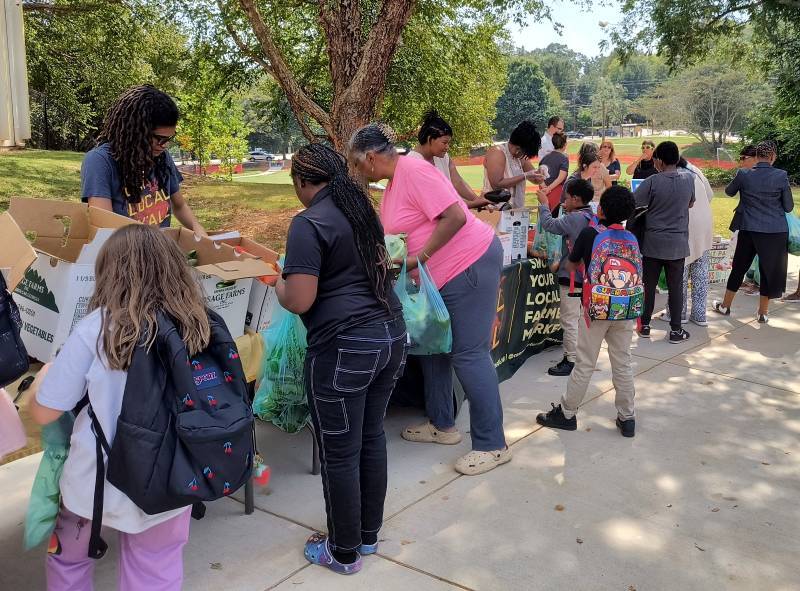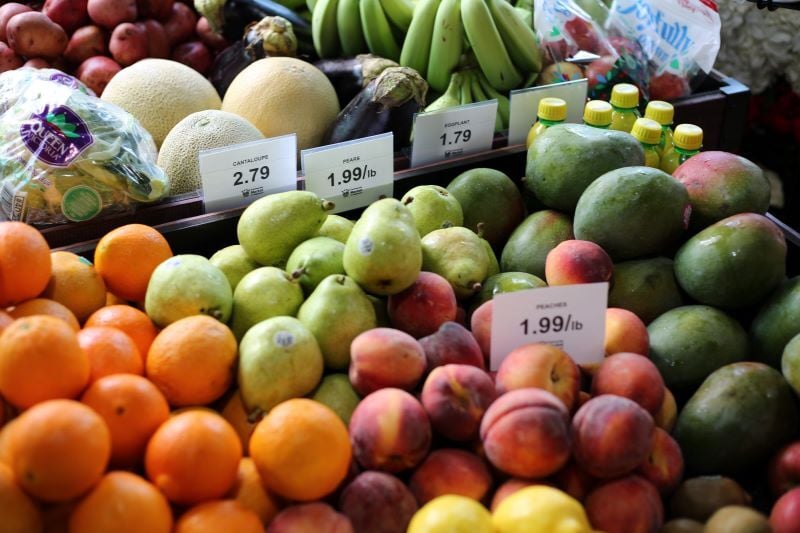According to the USDA, between 30-40% of the nation’s food supply is wasted each year. In Georgia, the total amount of wasted food is estimated to equal over 2 million pounds annually.
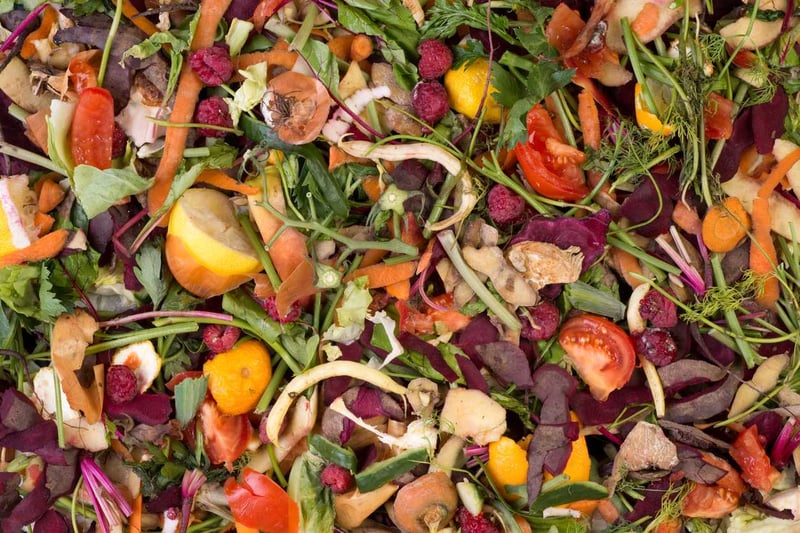
Discover the Many Georgia-Grown Food Waste Solutions
There are many ways to shrink the carbon footprint of our meals, such as eating a plant-forward diet and buying locally-grown foods, but one of the most impactful ways to lower the amount of food-related greenhouse gas emissions is to reduce the amount of food waste produced in our state.
All of the food we eat generates greenhouse gases during each step of the production and distribution process. From growing, harvesting, and transporting the food to keeping it refrigerated to preparing it, there are almost always carbon emissions involved in getting each meal from the farm to our plates.
Food waste is a major climate concern for a few reasons. When food is wasted, all of those emissions were also wasted, as were the water, energy, and fertilizers used to grow it. And if that wasted food is allowed to decompose in landfills, it continues to produce GHG emissions, including methane, a potent greenhouse gas. If we can reduce food waste in Georgia by just 12% by 2030, we will reduce carbon emissions by one megaton.
Where does food waste occur?
Food waste is a problem that extends far beyond that leftover takeout that you forgot about in the back of your fridge. Here are just a few examples of how food gets wasted at every step of the production and distribution process.
On the Farm:
-
Food can be damaged by extreme weather, molds/bacteria, birds, rodents, and other pests
-
Crops may be overplanted due to the difficulty in predicting changing demand for certain foods
-
Some edible crops are left to rot in the fields after being missed by mechanical harvesting or because market prices make harvesting unprofitable to the farmer
During Sorting and Processing:
-
Foods that are deemed cosmetically unappealing may be discarded (though some are diverted for use in processed foods)
-
Products may be rejected due to industry regulations or food safety standards
-
Inefficient processing, malfunctioning equipment (such as the breakdown of a cooler or refrigerated truck), and spillage during processing and sorting can result in wasted food
At the Retail / Commercial / Institutional Level:
-
Damaged or inappropriate packaging can result in food that is unfit for consumption
-
Overstocking foods or preparing too much of a certain food due to the difficulty of predicting customer demand
-
Spills, equipment malfunctions, and excessive trimming of ingredients can create food waste in restaurants and institutions
-
Grocery stores may cull misshapen or blemished produce to meet anticipated consumer preferences
At the consumer level:
-
Confusion over “best before” or “use by” dates may lead to food being discarded while it is still safe to eat
-
Discarding leftovers from restaurant meals
-
Storing foods incorrectly, causing them to spoil more quickly
-
Buying more fresh foods than the household can consume at one time
What are the solutions to reduce food waste?
Food waste has a detrimental impact on our planet, but it’s also a crisis for our communities when one out of seven Georgia residents faces food insecurity. Many of the solutions to the problem of food waste focus on redirecting excess food to families in need.
For example, farmers can donate blemished or misshapen but still wholesome produce to food banks. The Georgia Food Bank Association has built a Farm to Food Bank network that provides over 14 million pounds of farmer-donated food to those in need each year.
Organizations that Fight Food Waste
Redistributing the excess food from businesses--such as grocery stores, restaurants, schools, and other institutions--is a critical piece of the puzzle as well. There are also several Georgia organizations that fight food waste, including:
-
The Atlanta Community Food Bank collects nearly 9 million pounds of food each month through donations from farmers, food producers, distributors, and retail establishments, as well as from individuals. The food is then distributed to their network of over 700 nonprofit partners with locations in 29 counties in North Georgia.
-
Goodr is a local business with a unique model that provides a “triple-win” for any Georgia company connected to the food industry. In addition to reducing greenhouse gas emissions from food waste and redirecting edible food to communities in need, Goodr transports and tracks surplus food donations, obtaining tax deductions for these charitable donations to improve the bottom line for their customers.
Many grocery stores in Georgia are also stepping up to help reduce the amount of waste their stores produce and ensure that it reaches the families who need it most. Kroger’s Zero Hunger | Zero Waste initiative aims to eliminate food waste company-wide by 2025. In 2019, the company donated 101 million pounds of food nationwide. Sprouts has a similar goal of diverting 90% of its waste from the landfill through donations to Feeding America, providing excess food for livestock feed, and composting.
Compost: a Solution to Food Waste and Climate Change
Speaking of compost--turning inedible food into rich, organic fertilizer (rather than allowing it to rot in a landfill, spewing methane into the atmosphere) is another important solution to the problem of food waste and for climate change. Many urban centers across the country collect food scraps and yard debris for municipal composting, and composting services are beginning to sprout up across Georgia.
In Atlanta, CompostNow collects food waste from homes, businesses, and restaurants and sells the resulting fertilizer to local farms. For larger institutions in the Atlanta area, such as airlines, sports venues, manufacturers, schools, and hospitals, Southern Waste and Recycling collects and processes organic waste as well. Small start-ups are also beginning to collect food scraps and other compostable materials in parts of the state outside of Atlanta.


